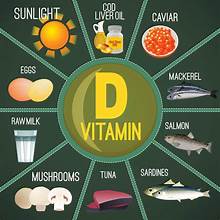Uncategorized
The Top Supplements to Support Healthy Aging
The Top Supplements to Support Healthy Aging
As we age, our bodies undergo various changes that can impact our overall health and well-being. From a decrease in muscle mass and bone density to changes in metabolism and skin elasticity, these natural processes can sometimes leave us feeling less energetic or more prone to certain health conditions. While a healthy diet and regular exercise are crucial in supporting healthy aging, supplements can play an important role in helping to fill nutritional gaps, support vital bodily functions, and slow down some of the signs of aging.
In this article, we’ll explore the top supplements that can help support healthy aging, offering insights into how each supplement works and how to incorporate them into your daily routine.

1. Omega-3 Fatty Acids: Heart, Brain, and Joint Support
Why It’s Important:
Omega-3 fatty acids, found in fish oil, flaxseed, and certain algae, are essential for maintaining heart health, brain function, and joint flexibility. As we age, the risk of cardiovascular diseases increases, and omega-3s have been shown to reduce the risk of heart disease by lowering cholesterol levels, reducing inflammation, and improving blood circulation. Additionally, omega-3s are known to support cognitive function and may help protect against age-related cognitive decline, including conditions like dementia and Alzheimer’s disease.
How to Use It:
The recommended daily intake of omega-3 fatty acids is typically 1,000–2,000 mg. You can obtain omega-3s from fatty fish like salmon, mackerel, and sardines or through supplements like fish oil or algae oil, particularly if you don’t eat fish regularly.
Tip: Look for supplements that contain EPA (eicosapentaenoic acid) and DHA (docosahexaenoic acid), the two most beneficial types of omega-3s for heart and brain health.
2. Coenzyme Q10 (CoQ10): Energy and Cellular Health
Why It’s Important:
Coenzyme Q10 is a powerful antioxidant that plays a vital role in energy production at the cellular level. As we age, our natural levels of CoQ10 decrease, which can contribute to fatigue, muscle weakness, and other signs of aging. Supplementing with CoQ10 can help support cellular energy production, improve heart health, and protect against oxidative stress, which is linked to aging and age-related diseases.
How to Use It:
For adults over 40, a typical dose of CoQ10 is between 100–200 mg per day. CoQ10 is available in both ubiquinone (the oxidized form) and ubiquinol (the reduced, more absorbable form). If you’re looking for faster absorption, ubiquinol may be the better option.
Tip: CoQ10 supplements are best taken with meals containing fat, as they are fat-soluble and require fat for optimal absorption.
3. Vitamin D: Bone Health and Immune Support
Why It’s Important:
Vitamin D is crucial for maintaining strong bones, as it helps the body absorb calcium and supports bone mineralization. As we age, our ability to absorb vitamin D from sunlight decreases, and many older adults become vitamin D deficient. Low levels of vitamin D can lead to osteoporosis, fractures, and a weakened immune system. Additionally, vitamin D has been linked to a lower risk of chronic diseases, including cardiovascular disease and certain cancers.
How to Use It:
The recommended daily intake of vitamin D is 600–800 IU for most adults, though those over 70 may need 1,000 IU or more. If you have limited sun exposure or live in a colder climate, supplementation may be necessary.
Tip: Vitamin D works synergistically with calcium, so it’s beneficial to take both together. Vitamin D is best absorbed when taken with meals, especially those containing fat.
4. Collagen: Skin, Joint, and Bone Support
Why It’s Important:
Collagen is the most abundant protein in the body, providing structure to your skin, joints, and bones. As we age, collagen production naturally declines, leading to wrinkles, joint pain, and a decrease in bone density. Supplementing with collagen can help improve skin elasticity, reduce wrinkles, and support joint health by strengthening cartilage and improving joint mobility.
How to Use It:
A typical collagen supplement dosage ranges from 10–15 grams per day, often in the form of hydrolyzed collagen peptides, which are easier for the body to absorb. Collagen supplements may also contain vitamin C to support collagen synthesis.
Tip: Collagen supplements are available in powders, capsules, and liquid forms. Choose a high-quality product that contains types I and III collagen, which are most beneficial for skin and joint health.
5. Turmeric/Curcumin: Anti-Inflammatory and Joint Health
Why It’s Important:
Turmeric contains the active compound curcumin, which has powerful anti-inflammatory and antioxidant properties. Chronic inflammation is a key contributor to many age-related diseases, including arthritis, heart disease, and cognitive decline. By reducing inflammation, curcumin can help relieve joint pain, improve mobility, and support brain health.
How to Use It:
A typical curcumin supplement dose is 500–1,000 mg per day, but it is often recommended to take it with black pepper (piperine) to enhance absorption. Curcumin is not easily absorbed by the body on its own, so look for supplements with enhanced bioavailability.
Tip: If you suffer from joint pain or stiffness, turmeric supplements may offer relief, especially when combined with other anti-inflammatory supplements like omega-3s.
6. Magnesium: Relaxation and Bone Health
Why It’s Important:
Magnesium is a mineral that supports more than 300 biochemical processes in the body, including muscle function, nerve transmission, and bone health. Magnesium also helps regulate calcium levels, making it essential for maintaining healthy bones. As we age, magnesium levels tend to decrease, which can lead to muscle cramps, insomnia, and an increased risk of osteoporosis.

How to Use It:
The recommended daily intake of magnesium is 310–420 mg. Magnesium supplements come in various forms, including magnesium citrate, glycinate, and oxide. Magnesium citrate and glycinate are generally better absorbed and gentler on the digestive system.
Tip: Magnesium is best taken before bedtime, as it helps promote relaxation and improve sleep quality.
7. Probiotics: Gut Health and Immune Function
Why It’s Important:
As we age, the balance of beneficial bacteria in the gut may shift, leading to digestive issues, a weakened immune system, and an increased risk of inflammation. Probiotics are live beneficial bacteria that can help support gut health by promoting the growth of good bacteria, improving digestion, and boosting the immune system. A healthy gut microbiome is essential for overall well-being, particularly as we age.
How to Use It:
A typical dose of probiotics ranges from 1–10 billion CFUs (colony-forming units) per day, though higher doses may be recommended for specific health concerns. Probiotics are available in capsules, powders, and fermented foods like yogurt and kefir.
Tip: Look for a probiotic supplement that contains a variety of strains for optimal gut health. Prebiotics, which feed beneficial bacteria, may also be included in some supplements.
8. Resveratrol: Anti-Aging and Cellular Health
Why It’s Important:
Resveratrol is a natural antioxidant found in the skin of grapes, red wine, and certain berries. It has gained popularity for its potential to slow down the aging process and reduce the risk of age-related diseases. Resveratrol has been shown to improve cardiovascular health, protect against oxidative stress, and may even help promote longevity by activating certain genes associated with aging.
How to Use It:
The typical resveratrol dose ranges from 100–500 mg per day. Resveratrol is often found in combination with other antioxidants like vitamin C or E for enhanced effects.
Tip: Resveratrol supplements are most effective when taken with meals to help enhance absorption and protect against oxidative stress.
Conclusion
Healthy aging involves taking a holistic approach that includes a balanced diet, regular physical activity, mental stimulation, and proper supplementation. While no single supplement can prevent aging, the right combination of supplements can help slow down the aging process, support key bodily functions, and improve quality of life.
Supplements like omega-3 fatty acids, CoQ10, vitamin D, collagen, turmeric, magnesium, probiotics, and resveratrol are all great options to consider. However, it’s always important to consult with a healthcare provider before starting any new supplement regimen, especially if you have underlying health conditions or are taking medications. By incorporating these supplements into a healthy lifestyle, you can help ensure that you continue to feel your best as you age.


